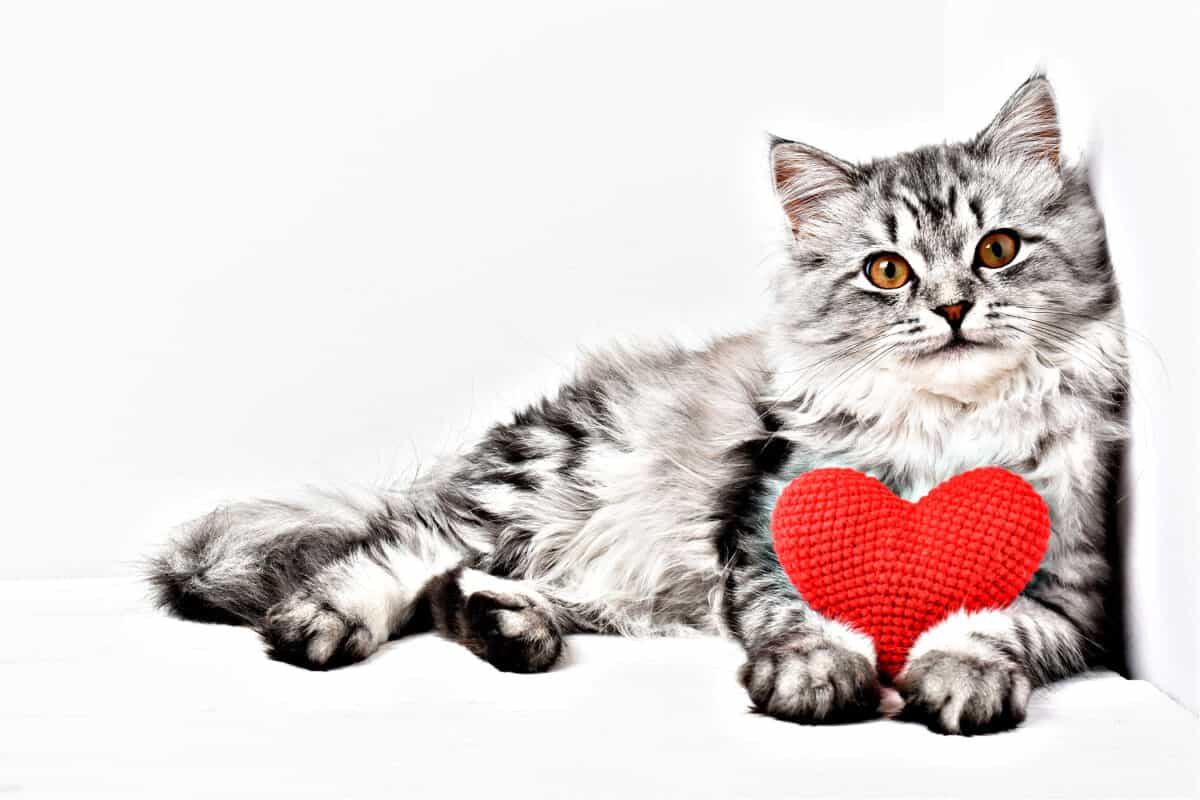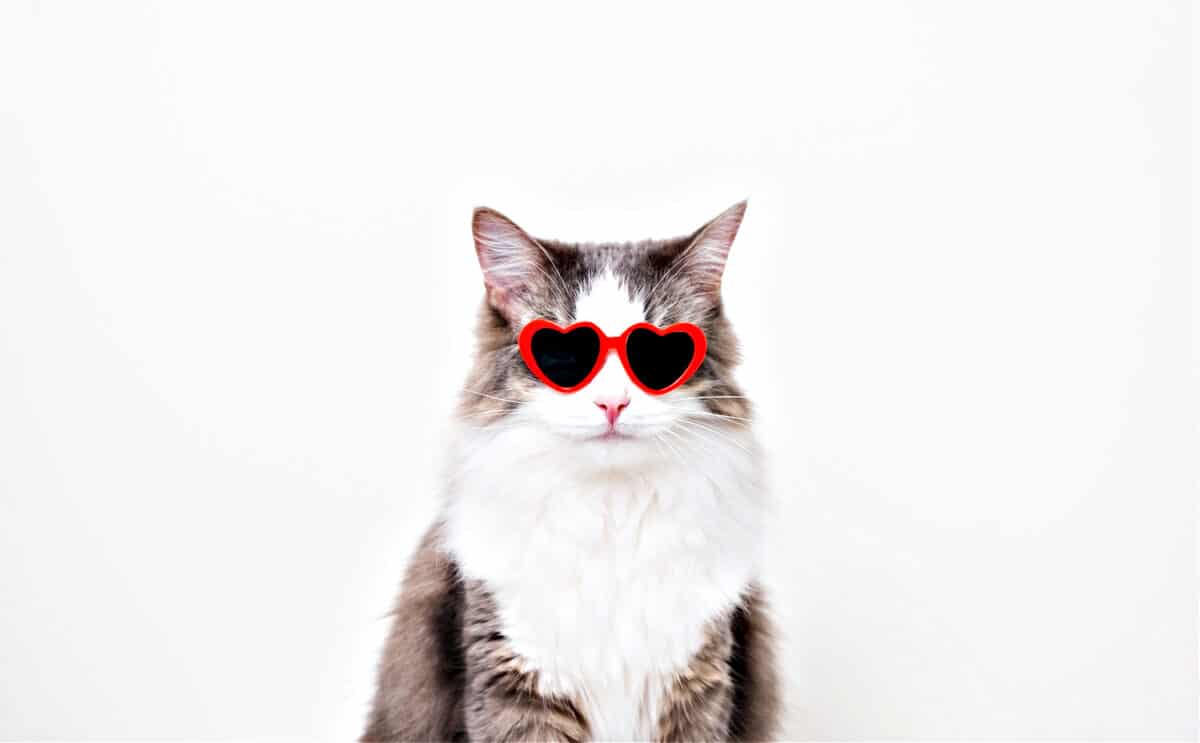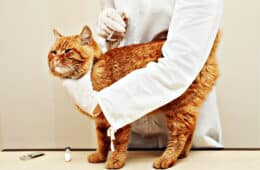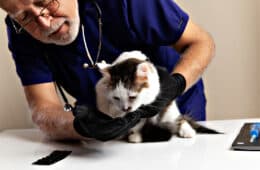Heart disease in cats is a hidden danger. It can lurk unnoticed, showing no signs until it has advanced. Whether you have an active outdoor cat or a more sedentary indoor companion, understanding heart disease is crucial.
This article will shed light on this common but often undetected ailment. You'll learn about the symptoms, discover the breeds more prone to heart problems, and find out what real cat owners have experienced.
Get ready to equip yourself with the knowledge that can make a vital difference in your furry friend's life.
The Silent Threat of Heart Disease in Cats
Heart disease is an invisible menace to cats. It hides itself well, showing no clear symptoms until it has already reached a serious stage. This hidden danger is especially tricky to spot in more sedentary, indoors-only cats where significant changes in pulse might not be evident.
The risk of heart disease is not confined to certain ages; it can affect cats both young and old. In some cases, it's even present at birth.
Certain breeds, such as the Maine Coon, Bengal, Persian, and Ragdolls, have been identified as being more susceptible. Interestingly, orange male cats also seem to be more prone to heart issues.
Heart disease is not limited to older cats. Forum member Queenofcats81 says her cat Ollie was diagnosed with an enlarged heart when he was only four years old. In fact, heart disease can be congenital and present at the time of birth.
According to The Cornell Book of Cats, Siamese cats seem more prone to congenital heart defects.

Heart Disease in Cats: The Symptoms
Here are the symptoms to watch for:
- Lack of appetite
- Weakness
- Labored breathing, more from the stomach than the chest area
- Coughing
Real Stories: Living with Heart Murmurs
Kmd’s nine-year-old tuxedo cat, Elmo, was diagnosed with a heart murmur. He was fine for a year but then showed a lack of interest in food and had trouble breathing.
The veterinarian prescribed two kinds of medication (combined in capsule form and given with the help of a pill popper), which helped for almost eight months.
SIGN UP FOR THECATSITE'S EMAIL UPDATES >
“Heart murmurs can come and go but you should keep checking and do an ultrasound,” says Dr. Cindy Houlihan, owner of The Cat Practice in Birmingham, Michigan. “Also, larger male cats are more likely to have heart disease, especially purebreds.”
From Heart Murmurs to Cardiomyopathy: Case Studies
Threecatnight’s cat was very young - only six months old - when his vet discovered a heart murmur and cardiomyopathy. A twice-daily vitamin, Lasix, and heart medications helped him live to the age of seven, at least four years longer than his original prognosis.
Jade, who lives with cbuehner, was found to have a heart murmur at age three. She was treated and remained in good health until she had a heart attack at age fourteen.
A prescription of Furosemide has kept Jade going to age sixteen, with no further problems.
Aortic Thromboembolism and Other Conditions
Heart murmurs are not the only disease cats get. DrBobCat’s kitty suffered aortic thromboembolism which is a blood clot in the aorta.
“My cat suddenly started screaming and then dragging her rear legs. She had not been diagnosed with any heart problems.” Even with morphine, the cat was still in pain and paralyzed. Since these clots tend to recur, a long-term prognosis was poor. Due to the extreme pain, the cat was euthanized.
Prevention, Early Diagnosis, and Medication
Irregular heartbeats are something that Flaco has lived with all his life. SweetSally2 says her vet gives Flaco a clean bill of health each year and at age fourteen, he’s doing fine.
“Prevention and early diagnosis are paramount,” says Dr. Houlihan. “Regular veterinary visits, heart screening, and for breeders, genetic testing to see if the cat is a carrier for heart-related problems, can help.”
Medication can help reduce the workload on the heart by improving the oxygenation of the blood.
Specific treatment protocols vary according to the severity and type of heart disease. If a heart disease is caught early, medication can help cats live longer, more comfortably.
Treatment and Medication Options for Heart Disease in Cats
Understanding how to care for a cat with heart disease is just as important as recognizing the symptoms. Treatment can vary widely based on the specific type of heart problem and its severity.
Medication can make a real difference, helping to reduce the heart's workload and improve the oxygen flow in the blood.
In some cases, as with Kmd's cat Elmo, the combination of medication and regular veterinary check-ups can manage the disease for a considerable time.
But being proactive is key. Regular visits to your vet, heart screening, and even genetic testing for breeders can be essential in early diagnosis and effective treatment.

Coping with Heart Conditions: Real Stories from Cat Owners
The experiences shared by cat owners in this article are a valuable reminder that heart disease can affect any cat.
From heart murmurs to aortic thromboembolism, the stories reflect the different faces of this condition.
Whether it's the courage of Jade, who has been kept going to age sixteen thanks to medication, or the tragic loss faced by DrBobCat, these real-life situations illustrate the importance of vigilance, early detection, and proper care.
Conclusion: Protecting Your Cat from Heart Disease
Heart disease in cats doesn't have to be a silent killer. With the right information, you can be on the lookout for hidden signs and know what to do if you suspect a problem.
Regular check-ups with your vet, awareness of the symptoms, and an understanding of the breeds more prone to heart issues can go a long way in ensuring the well-being of your furry companion.
Remember, early detection and prevention are paramount. Equip yourself with the knowledge shared in this article, and you'll be taking a big step towards providing a happy, healthy life for your cat.
Don't let heart disease catch you unawares. Be proactive, be informed, and most importantly, be there for your cat.
If you found this article helpful, make sure to sign up for TheCatSite's email updates for more valuable insights into cat health and well-being.
SIGN UP FOR THECATSITE'S EMAIL UPDATES >
Comments? Leave them using the form below. Questions about your cat? Post them in the cat forums.
The forums are the only place where you can get quick answers to your cat-related questions. Please do not use the comments section to ask questions about your cat.
Note: We may get commissions for purchases made through links on this page.




6 comments on “Heart Disease In Cats – Real Stories of Detection, Treatment, and Recovery”